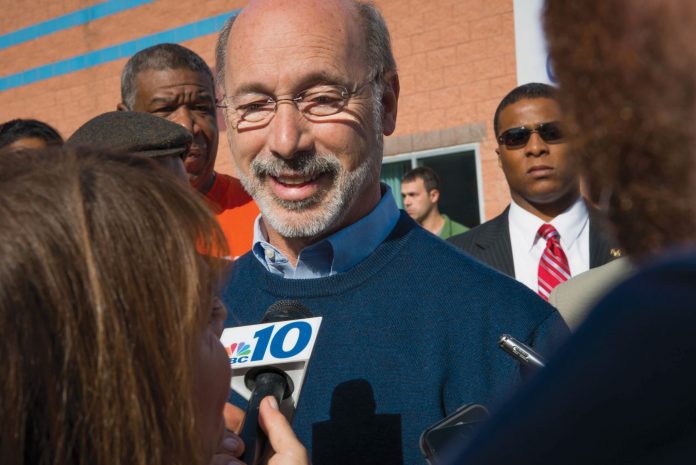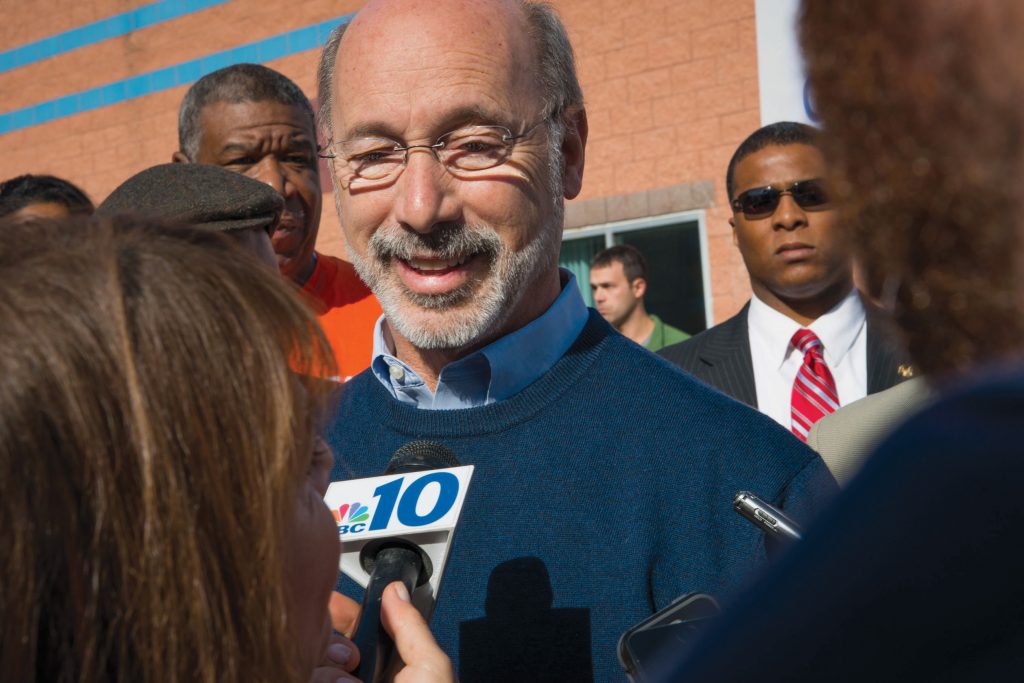Gov. Tom Wolf last week signed a $34 billion budget that divided Northeast lawmakers.
The bill passed the Senate last week, 42-8. Sen. John Sabatina Jr. voted for the budget. Sen. Tina Tartaglione was opposed.
Tartaglione opposed the spending plan because it failed to include language to raise the minimum wage and eliminated the general assistance program that provides about $200 a month to poor people in crisis.
“It has been 4,736 days since Pennsylvania last raised the minimum wage. It is unconscionable that we are walking out of here without doing that,” Tartaglione said. “People are having to choose between food on the table, medicine, rent. They need this!”
Pennsylvania last raised its minimum wage in June 2006 via Tartaglione’s bill as part of the budget negotiations that year. The measure raised the state’s minimum wage from $5.15 an hour to $7.15. Pennsylvania’s minimum wage later increased another 10 cents an hour when the federal government enacted a $7.25 minimum wage.
Tartaglione proposed to raise the minimum wage to $12 this year and to $15 by 2026 through annual increases of 50 cents. After 2026, the bill would tie the minimum wage to annual cost-of-living adjustments.
The House passed the bill, 140-62. Reps. Tom Murt, Martina White, Mike Driscoll and Ed Neilson voted for the budget.
Murt supported the bill because it increases funding for special-needs programs without raising taxes.
“Each year, I decide whether to support a budget based on how well it helps those who cannot help themselves,” Murt said. “It’s one thing to pontificate about preserving the social safety net, it’s another to commit the funds needed to sustain the programs making a difference in the lives of those with special needs. This budget, which passed the House with my support, does that.”
Reps. Kevin Boyle, Joe Hohenstein, Jason Dawkins, Jared Solomon and Isabella Fitzgerald opposed the budget.
“I voted no on House Bill 790 because it doesn’t put all people first,” Fitzgerald said. “For years, we have seen states that surround Pennsylvania increase the minimum wage – some at least twice — since the last time it was increased here. It hasn’t changed in more than a decade, yet people continue to struggle to make ends meet.
“This budget bill also forgets our most vulnerable citizens by eliminating the General Assistance fund. This money would have helped those Pennsylvanians who just need a little bit of help. It could have been for things that many of us take for granted: buying toiletries, diapers for babies, getting the bus to go to a doctor’s appointment.”
The budget adds $330 million to the rainy day fund and increases education funding by $265 million. ••






